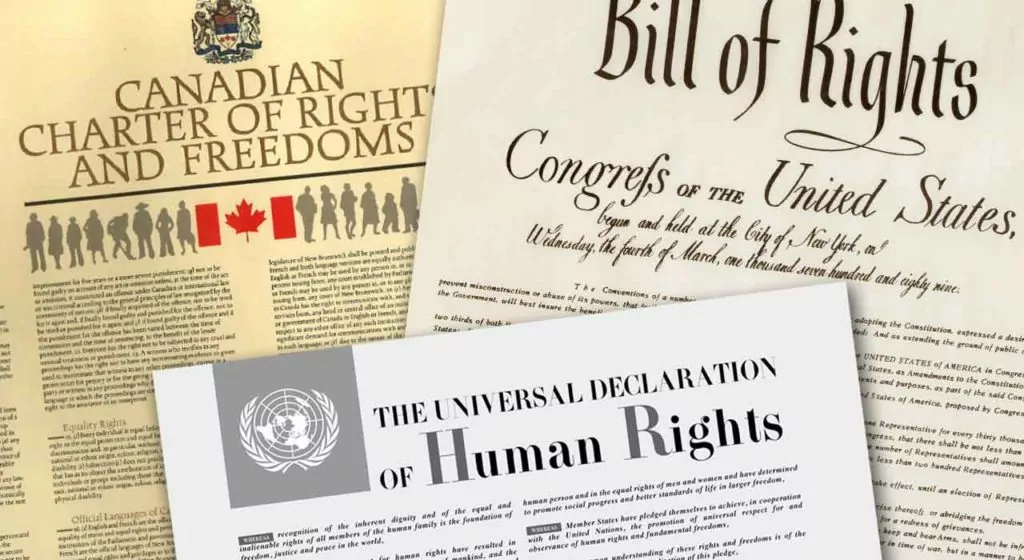“Any fool can criticize, condemn and complain – and most fools do” – Dale Carnegie
*****
In his bestseller How to Win Friends and Influence People Dale Carnegie begins with the story of “Two Gun” Crowley, a famous killer from the 1930s. When authorities tracked him down:
…150 policemen and detectives laid siege to his top-floor hideaway. They chopped holes in the roof; they tried to smoke out Crowley, the “cop killer,” with tear gas. Then they mounted their machine guns on surrounding buildings, and for more than an hour one of New York’s fine residential areas reverberated with the crack of pistol fire and the rat-tat-tat of machine guns.
Shortly before, Crowley had been parked along a country road, kissing his girlfriend, when a policeman had walked up and asked to see his license. Crowley responded by immediately shooting the officer several times, grabbing the officer’s gun, and shooting the now prone man with his own gun. He then fled to his hideaway where he was soon discovered.
Though completely surrounded Crowley shot back incessantly, but also found time to write a letter, addressed “To whom it may concern.” In this letter Crowley described himself as a man with “a weary heart, but a kind one – one who would do nobody any harm.” When he was finally caught, convicted and sentenced to the electric chair he continued to think highly of himself. Instead of admitting this was the consequence of his sins he said: “This is what I get for defending myself.”
The moral of this little story? Even when our guilt is clear, we will find ways to justify our actions and convince ourselves that someone else must be to blame. Or as Carnegie puts it “ninety-nine times out of a hundred, people don’t criticize themselves for anything, no matter how wrong [they] may be.”
A solution?
Carnegie has it exactly right. It is human nature to try to elude criticism, and when we can’t manage that, we will at least try to spread the blame around. After all, we know we’re good, so if we did something bad it must be someone else’s fault.
“…but you made me lose me temper!”
“They had it coming.”
“You wouldn’t believe what she said first…”
We are all prone to presenting “the devil made me do it” excuses and justifications as if they were valid reasons for our behavior.
Carnegie concludes that because we all hate criticism, and pay so little attention to it, “Criticism is futile.” He suggests that, as a general rule, we “Don’t criticize, condemn or complain” and instead focus on the positive and the praiseworthy.
God’s thoughts on criticizing
Most of us could benefit from taking a large dose of Carnegie’s advice. But does it work as an absolute rule? Should we never criticize?
While Jesus spoke against quick, thoughtless, and hypocritical criticism (Matt. 7:1-5), He also called on listeners to “repent and believe” (Mark 1:15), which is a decidedly critical message. It demands that people stop and turn from the evil they are doing! In fact, God says a dividing line between the righteous and the fool is in how they take criticism.
- Whoever loves discipline loves knowledge, but he who hates reproof is stupid. – Prov. 12:1
- A wise son hears his father’s instruction, but a scoffer does not listen to rebuke. – Prov. 13:1
- A fool despises his father’s instruction, but whoever heeds reproof is prudent. – Prov. 15:5
- A rebuke goes deeper into a man of understanding than a hundred blows into a fool. – Prov. 17:10
Clearly, if taking criticism is a mark of wisdom, then there is a need also to give it – for Christians it is not a matter of whether we should ever criticize, but instead when and how we should go about doing it. When we look to the Bible for guidance, we find at least four questions to consider.
1. Is criticism needed…or grace?
To those all aware of their sins and already sorry for them, further fault-finding isn’t needed (though some who say they are sorry for their sin are simply sorry they were caught). If a person is already broken, then we can make them aware of our Saviour – we can skip the criticism and get right to grace! It is only those who don’t know the bad news – who as Carnegie puts “don’t criticize themselves for anything, no matter how wrong [they] may be” – that we need to first bring to Moses, the law, and the evidence of their sinfulness, before we bring them to Jesus.
2. Are we doing it in love?
There are so many wrong reasons to criticize – because we are angry or frustrated, because we want to feel superior, because we want to defend ourselves and don’t want to listen to someone’s criticism of us.
That’s why when we are going to criticize it is important to question our motivations. Do we want to build this person up, or tear them down? Are we doing this out of annoyance, or out of love? A good rule of thumb might be that, if we really want to criticize, we probably aren’t doing it with the right motivations.
But the reverse is also true. If we see a friend, our spouse, a brother or sister, or our children, heading off down the wrong path and we don’t want to speak up, that’s also a good time to question our motivations – are we being apathetic and cowardly, and, consequently, unloving in not going after a straying sheep?
Now, in 1 Cor. 13:4-7 we read that love is patient and keeps no record of wrongs. And 1 Peter 4:8 communicates a similar thought – love overlooks a multitude of sins. If we are to lovingly criticize one another this means we will only speak up about something substantial – something that matters – and won’t keep a running tally of petty grievances.
Criticizing lovingly also means doing so inclusively – a matter of coming alongside rather than lecturing from high atop our pedestal. As Paul Tripp puts it, we need to make it clear we are “people in need of change helping people in need of change.” How might this look in practice? Street preacher Ray Comfort, when confronted by a homosexual, will talk first about the sins they hold in common. He will ask whether the man has ever stolen anything, ever lied, ever hated someone in his heart. By starting with the sins they hold in common, rather than the sin they do not, Comfort makes it clear he has no delusions of grandeur. He knows he is in need of this same promise of forgiveness he’s preaching.
3. Are we criticizing with care?
We should criticize with care. In Matthew 7:1-5 Jesus condemns how quick we are to judge others by standards that we don’t measure up to ourselves.
“Why do you look at the speck of sawdust in your brother’s eye and pay no attention to the plank in your own eye? How can you say to your brother, ‘Let me take the speck out of your eye,’ when all the time there is a plank in your own eye? You hypocrite, first take the plank out of your own eye, and then you will see clearly to remove the speck from your brother’s eye.
This rules out casual critiques. We too easily evaluate the faults of those all around us, and know just what they should do to fix their hair, their wardrobe, their children or marriage. But this sort of flippant evaluation isn’t done out of love. We aren’t looking to help our neighbor; we point out their flaws so we can feel superior to them.
It also rules out reactive criticism. Jesus wants us to consider our own problems and sins – the “plank in our own eye.” So when these problems are pointed out to us, it is may be human nature to respond in kind with a snap assessment of our critic, but that isn’t the godly response.
There is one whose rash words are like sword thrusts, but the tongue of the wise brings healing. – Prov 12:18
4. Have we tried it privately?
Whenever possible, we should offer criticism privately. In Matthew 18:15 the first step in correcting a sinning brother involves a private meeting “just between the two of you.” This is the approach Aquila and Priscilla used when they wanted to explain the “way of God more adequately” to Apollos, who “knew only the baptism of John.” They invited him back to the privacy of their home to talk and teach.
None of us like to be criticized but we especially don’t like to be criticized publicly. In the spirit of doing unto others as we would like them to do unto us we should offer our criticism privately.
This is just as true for our children. We clearly have to criticize and correct them – that is a parent’s God-given role. But we can try to do this in private as much as possible. Spankings can be administered in a room far from guests or other children. Talks, too, can be done behind a closed door, away from the ears of their siblings.
Matthew 18 also makes it clear that not all criticism can be done privately, but when it is possible it is best.
Conclusion
We should criticize carefully, lovingly and privately, but we most certainly should criticize.
God has put us together in a community so that we can “teach and admonish one another” (Col. 3:16). Sometimes there can be a temptation to stay quiet, even when we have some godly wisdom to offer a brother having problems. We can even fool ourselves into thinking we are simply “minding our own business” (and that our silence has nothing at all to do with cowardice). But minding our own business isn’t exactly a Christian virtue – we are our brother’s keeper and we must be concerned with his welfare. So if we love him, and he is in need of correction, silence is simply not an option.
“My brothers and sisters, if one of you should wander from the truth and someone should bring that person back, remember this: Whoever turns a sinner from the error of their way will save them from death…” – James 5:19-20
A version of this article originally appeared in the February 2012 issue.
****
Postscript: How should we receive criticism?
As Carnegie notes, it is human nature to bristle at criticism and ignore it, but human nature is sinful, so the way we do react might not be the way we should react.
God tells us that it is simply stupid to hate correction (Prov 12:1). We know we are far from perfect, and clearly in need of improvement, so we should “listen to advice and accept instruction” (Prov. 19:20).
So how do we overcome our defensiveness? How can we learn to welcome criticism? We need to ask God to make us want to be wise, rather than foolish. We need to pray for a growing awareness of our own sins, and our need for correction. It is only when we understand how needy we are that we will embrace the help that is offered.
That doesn’t mean listening to every critic – many are fools. But it does mean we need to recognize that criticism of the godly sort is a precious, if not always pleasant, commodity.










